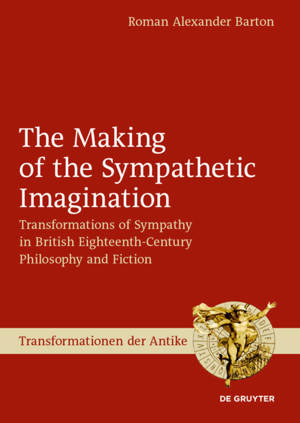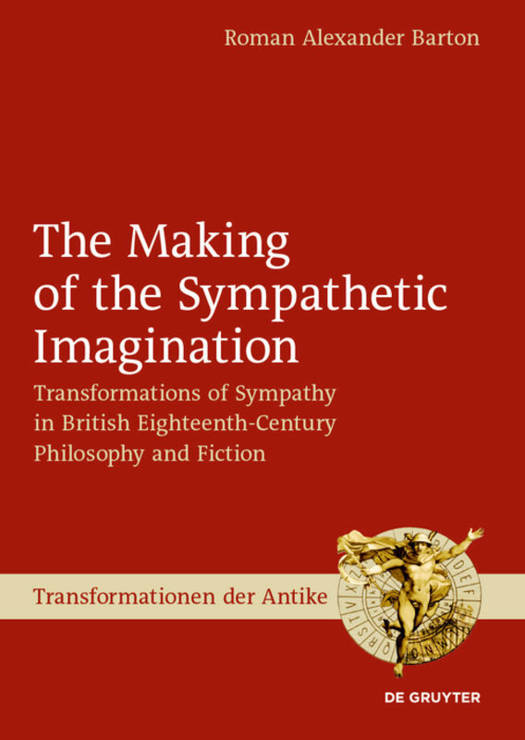
Bedankt voor het vertrouwen het afgelopen jaar! Om jou te bedanken bieden we GRATIS verzending (in België) aan op alles gedurende de hele maand januari.
- Afhalen na 1 uur in een winkel met voorraad
- In januari gratis thuislevering in België
- Ruim aanbod met 7 miljoen producten
Bedankt voor het vertrouwen het afgelopen jaar! Om jou te bedanken bieden we GRATIS verzending (in België) aan op alles gedurende de hele maand januari.
- Afhalen na 1 uur in een winkel met voorraad
- In januari gratis thuislevering in België
- Ruim aanbod met 7 miljoen producten
Zoeken
The Making of the Sympathetic Imagination
Transformations of Sympathy in British Eighteenth-Century Philosophy and Fiction
Roman Alexander Barton
€ 191,95
+ 383 punten
Omschrijving
How is it that we feel with fictional characters and so approve or disapprove of their actions? For many British Enlightenment thinkers writing at a time when sympathy was the pivot of ethics as well as poetics, this question was crucial. Asserting that the notion of the sympathetic imagination prominent in Romantic criticism and poetry originates in Moral Sentimentalism, this study traces the emergence of what became a key concept of intersubjectivity. It shows how, contrary to earlier traditions, Francis Hutcheson and his disciples successively established the imagination rather than reason as the pivotal faculty through which sympathy is rendered morally effective. Writing at the interface of ethics and poetics, Adam Smith, Lord Kames and others explored the sympathetic imagination as a means of both explaining emotional reader response and discovering moral distinctions. As a result, the sentimental novel became the sight of ethical controversy. Arguing against the dominant view of research which claims that the novel of sensibility is mostly uncritically sentimental, the book demonstrates that it is precisely in this genre that the sympathetic imagination is sceptically assessed in terms of its literary and moral potential.
Specificaties
Betrokkenen
- Auteur(s):
- Uitgeverij:
Inhoud
- Aantal bladzijden:
- 220
- Taal:
- Engels
- Reeks:
- Reeksnummer:
- nr. 61
Eigenschappen
- Productcode (EAN):
- 9783110624014
- Verschijningsdatum:
- 20/07/2020
- Uitvoering:
- Hardcover
- Formaat:
- Genaaid
- Afmetingen:
- 170 mm x 244 mm
- Gewicht:
- 553 g

Alleen bij Standaard Boekhandel
+ 383 punten op je klantenkaart van Standaard Boekhandel
Beoordelingen
We publiceren alleen reviews die voldoen aan de voorwaarden voor reviews. Bekijk onze voorwaarden voor reviews.









